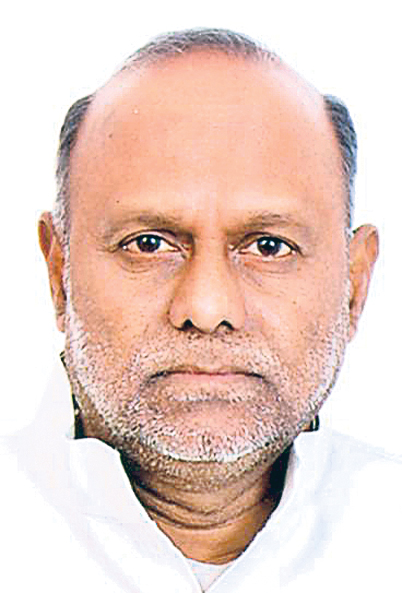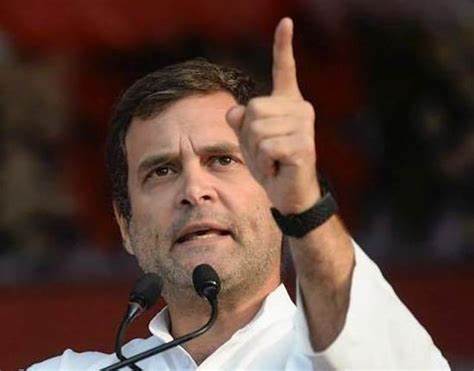(Dr Pentapati Pullarao)
Like all rulers of conquered territories, the British constantly sought to divide India and ensure that there was no unity. Like all old societies, India had many languages, religions and social groups called castes. India was perhaps the most complex human society thus far in the history of the world.
China, Japan, Korea and other South Asian countries are homogeneous. There is usually one language and a big dominant social group.
The British valued India as the Crown Jewel of the British Empire, because of the huge income it generated. But the British were always nervous after the 1857 War of Independence by Indians, which nearly ousted the British. After that, Britain divided Indian society along religion, caste and region.
“Divide and rule“was British policy in India to counter the Freedom movement led by great Mahatma Gandhi. Gandhi had to constantly fight the British tactics of dividing and rule. British sowed seeds of hatred amongst Indians. The British tried to ensure that India broke up into many parts. But Gandhi outplayed the British!
The British completed the giant Rashtrapati Bhavan, Parliament House and other buildings in 1929, confident that they would rule for another 200 years. But Gandhi kicked them out within 18 years after that. Even now, many politicians try to divide society for elections, reminding us of the British policy of “Divide and Rule “.
Congress and castes
Writing about castes in India is a very delicate matter. People who don’t like what you write will attack you. But caste is being dragged into politics, and one cannot avoid writing about it.
The Congress party under Rahul Gandhi is giving great emphasis to caste and sees potential divisions and conflicts between castes as great political opportunity.
Rahul Gandhi feels that by emphasizing caste, Hindus will be divided. Such divisions, he expects, may help the Congress. Since 2014, the Congress has not been winning elections. The Congress never talked about caste or religion. This is a new trend.
The Congress has only 3 state governments, namely Karnataka, Telangana and Himachal Pradesh. Obviously, bowing to pressure Telangana and Karnataka have gone for caste censuses. Himachal Pradesh has refused.
There are immediate consequences in the 3 Congress -ruled states due to caste censuses.
- Karnataka: Karnataka has released a caste census. This census has infuriated the dominant castes, particularly the Vokkaligas and Lingayats. The Congers won Karnataka state election in 2023 due to the support of Vokkaligas and Lingayats. By creating caste divisions and also trying to reduce influence of these castes, Congress has made them into enemies. Since the Congress in Karnataka has a huge majority, the government may not fall. But serious dissensions have started.
- Telangana: There is unanimity that it was Revanth Reddy mobilized the Reddy community and Congress won in Telangana in 2023. Now with a caste census, the Reddy community is being marginalized.
- Himachal Pradesh: The Congress won Himachal Pradesh in 2022, basically due to the support of Rajaputs and Brahmins. Chief Minister Sukhvinder Sukku is a Rajput. Now the Congress wants to use caste in Himachal Pradesh, where it would get no gain and only losses.
Caste census and political impact
- There is a theory that if you divide the castes, Congress can win elections. But this theory fails in real life since even most of the non- BJP leaders belong to dominant castes If the Congress won 3 state governments, it was only due to upper castes.
- There is also another theory that BC leaders like Mulayam Singh Yadav and Laloo Prasad Yadav formed governments due to Backward class support. They might be backward class leaders. But Mulayam Singh and Laloo Prasad Yadav became chief ministers since the Janata Party then in 1989, with support of BJP, won Bihar and Uttar Pradesh. Mulayam Singh Yadav and Laloo Yadav were Janata Chief Ministers and after some time, they split the Janata party and formed their own parties.
The BJP is also not a sleeping political party. The BJP also check-mates other parties on caste issues, by taking extreme positions. Such counter-action by BJP negates efforts of Congress party
Congress Party is a secular and caste-free party
Right through the great history of Congress, it was totally secular and caste-free. Mahatma Gandhi himself countered the British at every step when the British divided Indian society and encouraged divisions. This leadership of Gandhi was followed by Nehru, Indira Gandhi, Rajiv Gandhi and P.V. Narasimha Rao.
After the big defeat of Congress in 2014, the highly respected Congress leader A.K. Anthony submitted his report on causes of Congress defeat. Anthony simply concluded that “the Congress is a great secular party. It moved away from secularism and the Hindus felt it was anti-Hindu and that is why Congress lost. The Congress must become secular again “.
Anthony’s words have great wisdom in it. When you playcaste politics in India, you cannot predict where it will end up. It is a very dangerous game both for the nation and a political party.
Strong caste parties like Bahujan Samaj Party (BSP), Mulayam Singh and Laloo Yadav parties have been forced to seek support of upper castes.
Trying to use caste in India to win elections is risky. It is like riding a tiger. You cannot get off the tiger, since it will kill you.”
The idea of reservations in India after Independence is to ensure that depressed castes get assistance and protection. The eventual objective is that casteism will die and Indians will live in harmony. Now even after 80 years, if various castes hate each other, then the Constitution has not succeeded.
In the last 80 years, the greatest social transformation of the last 1000 years has taken place in India. It is hoped that politicians trying to create caste divisions will not succeed.

(Author is a Political and Economic Analyst)

